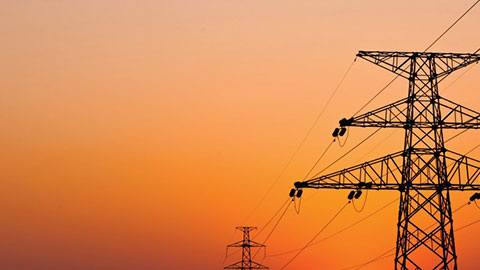TERI's recent study identifies strategies for 'Greening the Sector and Improving the Reliability of Power Supply' for the people of Goa

Panjim, November 17, 2021: To identify and address the challenges faced while ensuring 24x7 reliable and affordable power supply to the people of Goa, The Energy and Resources Institute (TERI) recently conducted a detailed study to identify strategies for ‘Greening the Sector and Improving the Reliability of Power Supply’.
The study focused on (a) identifying strategies for effective load management to cater to the growing demand, and (b) strategies for increasing the share of green power within the supply mix.
It identified various strategies which can help ensure a 24x7 reliable power supply to all the consumers within the state of Goa. These strategies include:
- Deployment of smart grid technologies for peak load and outage management,
- Promotion of consumer-side demand management interventions,
- Up-gradation & augmentation of transmission and distribution networks, and
- Increasing local generation through renewable energy (RE) sources.
Commenting on the study, Mr. Narayankumar Sreekumar, Associate Director, TERI said, “The importance of reliable power for a growing economy cannot be overemphasized as the economy is becoming more and more dependent on electricity for everything. This study suggests a way forward for increasing the quality and reliability of power supply and greening the power sector for the state of Goa which will be of immense value to policymakers in establishing the need for additional investments and identifying the appropriate mix of resources to meet the growing power demand of the state.”
The study observes that power demand in Goa has increased steadily over the past six years and is expected to double within the next 15 years. Over the years, per capita consumption of power in the state has also nearly doubled the national average. Despite achieving 100% electrification, various challenges continue to hamper the efforts of the state in ensuring 24x7 reliable electricity supply to all its citizens.
On the supply-side, it is important not only to meet the ever-growing demand for power but also to progressively increase the share of renewable energy (RE) in the generation mix to achieve overall energy security and to also meet the renewable purchase obligation (RPO) as per the target fixed by Joint Electricity Regulatory Commission (JERC) from time-to-time.
While accelerated adoption of energy-efficient appliances among consumers is one of the key demand-side management (DSM) measures, it is important to carry out comprehensive load research and integrated resource planning studies, from time to time. It is also crucial to ensure grid modernization utilizing smart grid technologies as a fault-proof efficient distribution network for maintaining a reliable power supply among the people of the state.
On the supply side, it is important not only to meet the ever-growing demand for power but also to progressively increase the share of renewable energy (RE) in the generation mix to achieve overall goal of environmental sustainability. There is a need for a long-term strategy, based on cost-effectiveness and availability, for increasing the ‘green’ energy share in the supply mix. Owing to the variable nature and spatial distribution of RE sources, the development of robust and reliable intra-state and inter-state transmission connectivity is crucial for facilitating this transition.
Thus, effective DSM implementation, well-defined power planning strategy, and ensuring adequate investments in building resilient transmission and sub-transmission systems can be considered as the building blocks in ensuring reliable electricity supply to the people of Goa.
About TERI
The Energy and Resources Institute (TERI) is an independent, multi-dimensional organisation, with capabilities in research, policy, consultancy and implementation. It has pioneered conversations and action in the energy, environment, climate change, and sustainability space for over four decades. The institute's research and research-based solutions have had a transformative impact on industry and communities. Headquartered in New Delhi, it has regional centres and campuses in Gurugram, Bengaluru, Guwahati, Mumbai, Panaji, and Nainital, supported by a multi-disciplinary team of scientists, sociologists, economists and engineers, and state-of-the-art infrastructure.

